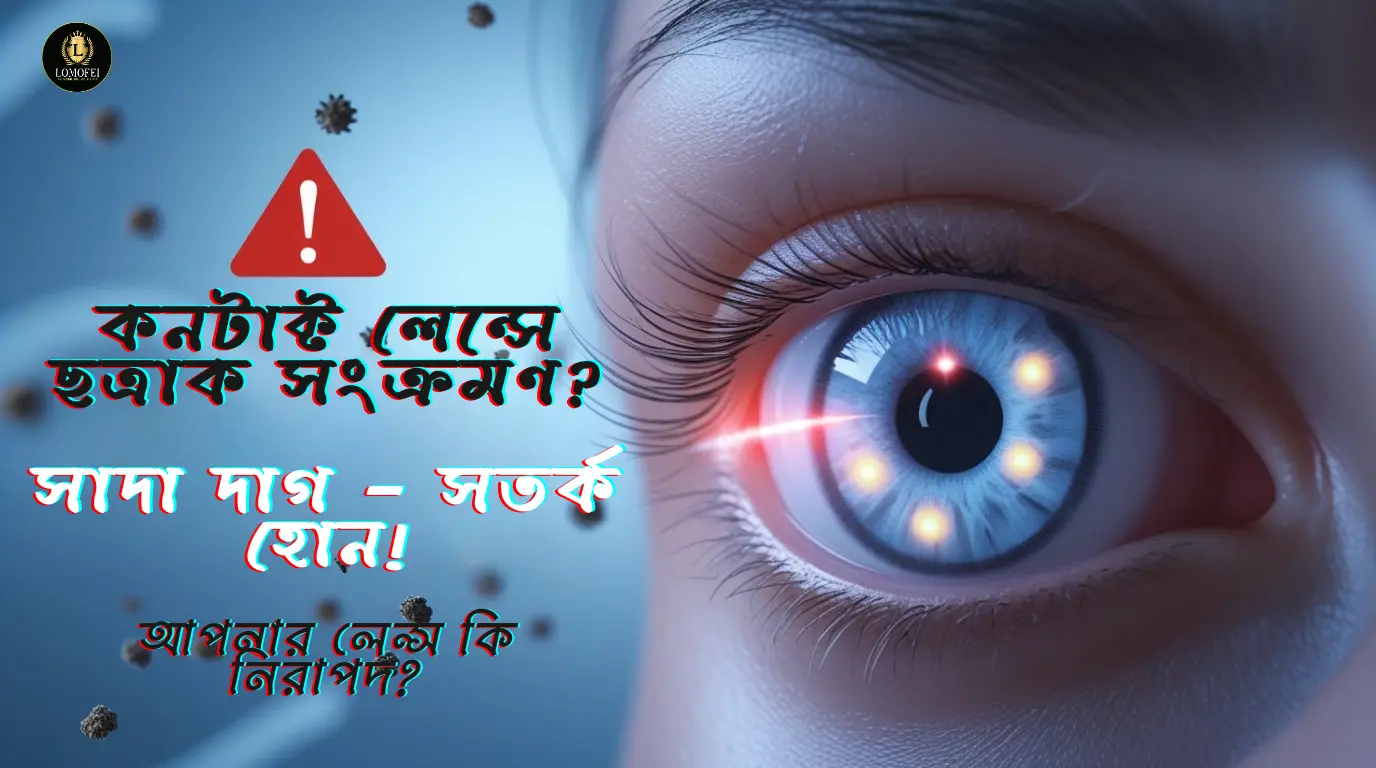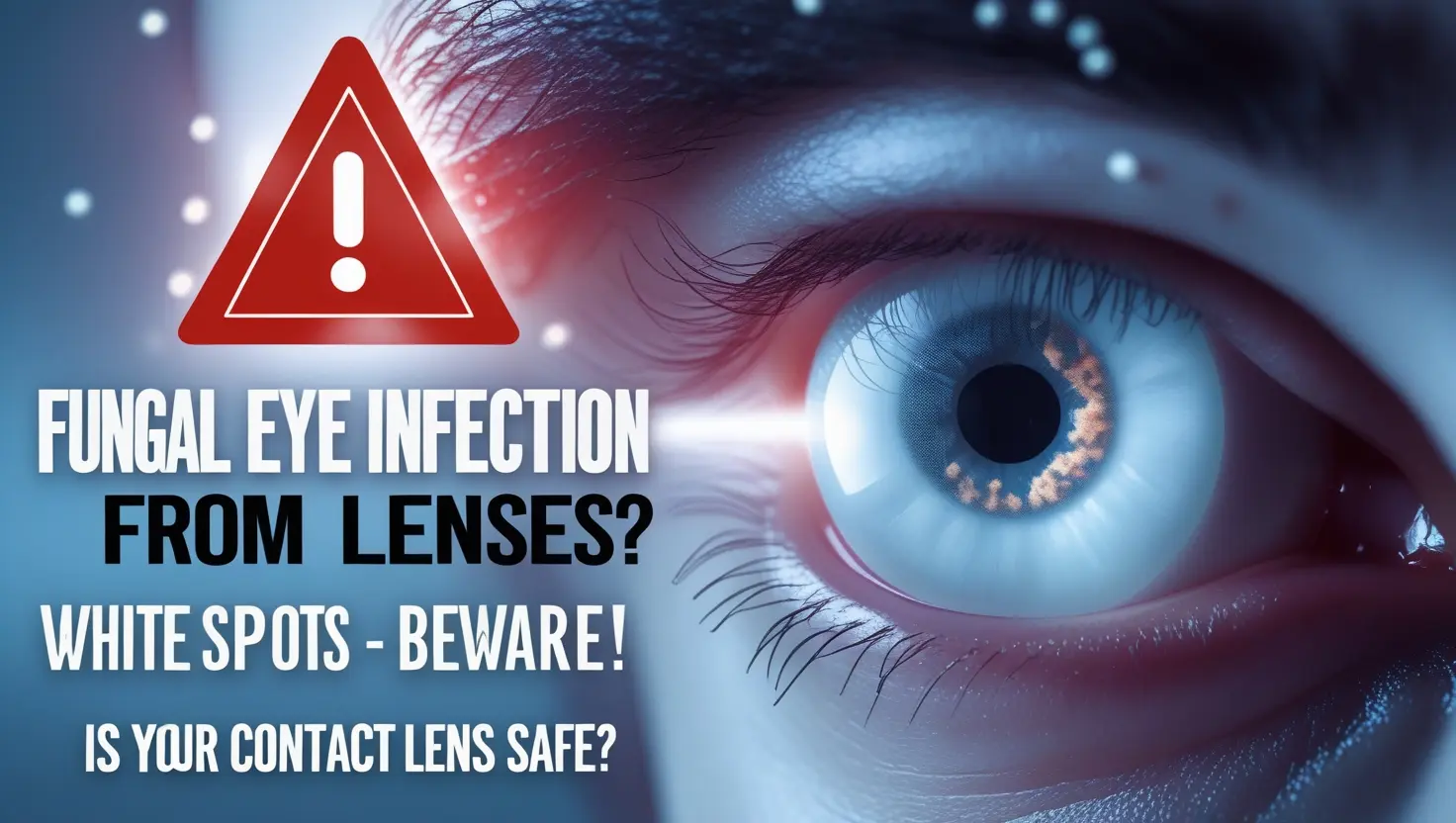Choosing the Best Contact Lens Solution: A Complete Guide to Eye Health & Comfort
The Best Contact Lens Solution: Your Ultimate Guide to Eye Health and Comfort
Anyone using contact lens products must select the right solution because it enables comfort and eye health. Various contact lens solutions available make selecting the best one difficult for consumers. This guide will examine various top choices and answer key questions regarding soft contact lens solution standards and solution creation techniques. A person needs to learn the steps for preparing contact lens solutions. This information will enable you to choose eye care products wisely.
Why Choosing the Right Contact Lens Solution Matters

Your eye health depends directly on your contact lenses' condition. Proper lens care is vital since your lenses will otherwise attract bacteria, resulting in pathogenic conditions that range from eye infections to severe conditions. Proper solution selection is essential because of its importance. A high-quality contact solution cleanses your lenses before they are hydrated, ensuring comfort during daily use.
The Most Suitable Contact Lens Solution Has These Featured Characteristics
You should check for the following qualities in contact lens solutions before selecting:
-
A suitable solution can remove all types of dirt, protein, and various other substances that harm your lenses.
-
The solution must eliminate all dangerous bacteria, fungi, and viruses because it prevents eye infections.
-
Maintaining lens moisture with regular solution application will minimize dryness and discomfort during use.
-
Solution selection for your lenses must match their type: soft contacts, rigid gas permeable (RGP), or hybrid lenses.
-
The ideal solutions contain no sensitizing chemicals because they do not irritate delicate eye tissue.
Types of Contact Lens Solutions: What You Need to Know

The market offers different contact lens solutions for various applications. These are the primary contact lens solution types to understand:
1. Multipurpose Contact Lens Solutions
Most users depend on multipurpose solutions, which clean, disinfect, and store soft contacts. Contact lens solutions provide users with simple and easy access through their vast distribution network.
Benefits:
-
A single product works for contact lens cleaning, rinsing, and storage.
-
Safe for daily use.
-
Ideal for soft hydrogel or silicone hydrogel lenses.
2. Hydrogen Peroxide Solutions
People who require additional cleaning power can effectively eliminate lens protein buildup and debris using hydrogen peroxide solutions. The solution is perfect for users with sensitive eyes or dry eyes.
Note: Observing product directions and solution neutralization steps is vital because unprocessed hydrogen peroxide can cause eye pain.
3. Saline solution
Saline solution is effective as a contact lens cleaning and storage solution, but it does not disinfect lenses. Users who use saline solutions must prepare cleaning solutions to pair with their disinfecting solution.
Best for:
-
Rinse lenses after cleaning.
-
Contact lens users looking for solutions without preservatives will find what they need.
4. RGP and Hard Contact Lens Solutions
People who wear rigid gas permeable (RGP) lenses and complex contact lens users require specialized solutions to maintain durability and sanitize their specific lens types. These solutions protect lens shape and preserve contact lenses' integrity.
Soft Contact Lenses vs. RGP Lenses: Choosing the Right Solution
Contact lenses require a solution depending on their material and design features.
-
Soft Contact Lenses: Use a multipurpose or saline solution.
-
Due to their rigid design, RGP lenses require intensive cleaning.
To determine a suitable solution, speak with your eye care professional to determine the best option based on your eye condition.
What Is the Appropriate Use of Contact Lens Solution?

Many people wonder if contact lens solutions are suitable for direct eye application. Using contact solution to clean and disinfect lenses is strictly forbidden. When applied to the eyes, contact lens solutions contain certain preservatives that may cause eye irritation.
Prescription lens drops, which you can obtain from your optometrist or from special contact lens solutions, are the most effective solution for irritated eyes while wearing contacts.
How to Make Contact Lens Solution at Home: Is It Safe?
The numerous online instructions for DIY contact lens solutions do not recommend making them at home. You cannot ensure lens and eye protection with homemade contact lens solutions because they lack disinfection properties. Commercial solutions receive complete quality testing before companies produce them for maximum lens performance. The most effective protection comes from FDA-approved solutions.
Contact Lens Care Tips
Following these basic guidelines provides the most effective outcome when using contact lens solutions.

-
You must avoid using tap water for contact lens care because you should only clean lenses with a lens cleaning solution. Using ordinary tap water brings dangerous microorganisms that infect your eyes and lenses.
-
The contact lens case requires monthly replacement while cleaning. It should be done with a solution and never with water.
-
Old solutions must always be exchanged for fresh ones when caring for your lenses since bacterial contamination results from reusing old ones.
-
Maintain contact lens changes according to your prescribed schedule between daily disposable and extended wear usage.
-
Put contact lenses away from your eyes for the entire sleep period unless your eye doctor approves it.
Frequently Asked Questions (FAQs).
1. Is it possible to use contact lens solution as eye drops?
Contact lens solution has a different purpose than eye use. It contains preservatives and chemicals that create discomfort on the eye surface.
2. How should I choose the best contact lens solution based on the factors I observe in my eyes?
Select a solution that matches your contact lens type (soft, durable, or RGP) to achieve your desired hydration, disinfection, or cleaning purpose.
3. Before buying a solution for your contacts, you should know that saline does not perform the same functions as a multipurpose solution.
Saline solution is suitable for lens rinsing and storage but lacks disinfecting properties. Multipurpose solutions cleanse, disinfect, and store contact lenses.
4. What is the correct schedule for solution changes when using contact lenses?
Fresh solution is the only appropriate fluid for lens cleaning and storage. Your contact lens case must be replaced every three months, and you must discard all old solutions.
Conclusion: Find the Right Contact Lens Solution for You
Selecting an optimal contact lens solution and precise vision results is crucial for optimal lens comfort and safety. Contact lens wearers should select a solution that effectively cleans, disinfects, and hydrates their lenses without causing irritation.
If you need help selecting the appropriate solution, consult an eye care professional. They will provide expert guidance and help you choose a solution that suits your specific lens care requirements and eye condition.






